Permissive Parenting Style Definition Some People Believe That Being Using A Permissive Parenting Style Is A Lackadaisical Attitude And Suggest That Kids Need More Of A Authoritative Approach.
Permissive Parenting Style Definition. Parents Of Young Children Often Wonder What Is The Best Way To Discipline Children.
SELAMAT MEMBACA!
Permissive parenting is characterized by parents who are responsive to their children, but lack rules and discipline.
/2794957-what-is-permissive-parenting-5b2c035943a103003654116b.png)
Permissive parenting is a type of parenting style characterized by low demands with high responsiveness.
Permissive parenting definition, characteristics and effects.
Permissive parenting, also known as indulgent parenting, is a parenting style characterized by high responsiveness and low demandingness.
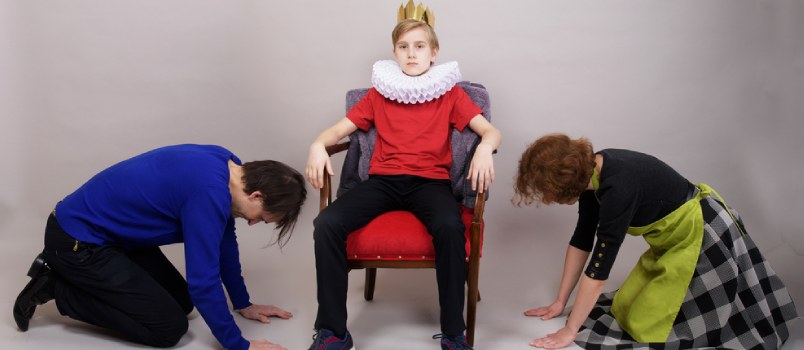
Kids do not have many responsibilities and are allowed to regulate their behavior and the majority of their this parenting style involves:
Being nurturing and warm, but reluctant to impose limits.
Rejecting the notion of keeping their kids under control.
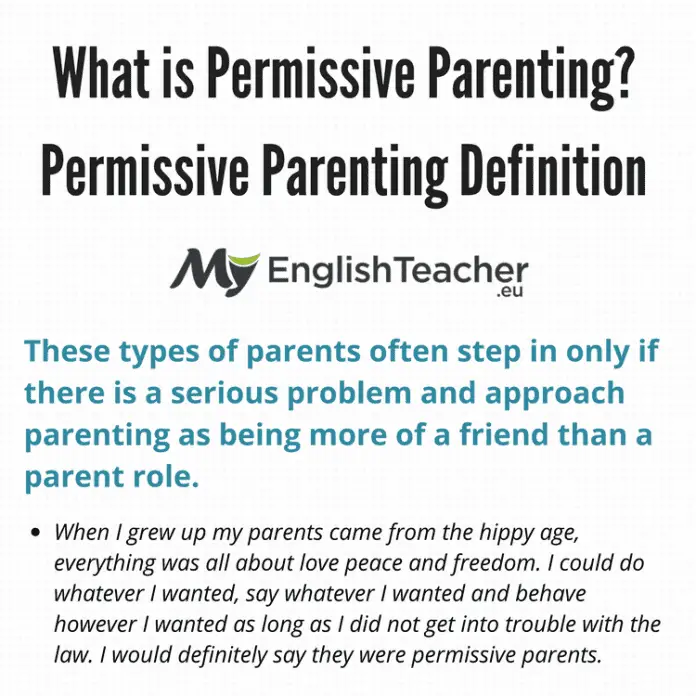
However, they are overly accepting of their children's behaviour, good or bad.
They feel their children are capable of making their own decisions with little parental guidance.
Permissive parenting styles represent one of four types of parenting that psychologists recognize.

Permissive parents are highly responsive towards their children's needs and nurture their talents and personality.
But they are least demanding because they have low expectations on children may love permissive parenting style as it gives them the maximum freedom without any strings attached.
A parenting style is a psychological construct representing standard strategies that parents use in their child rearing.

The official, psychological definition of permissiveness concerns parental control.
Are permissive parents too lax?
What criteria must parents meet the textbook definition.
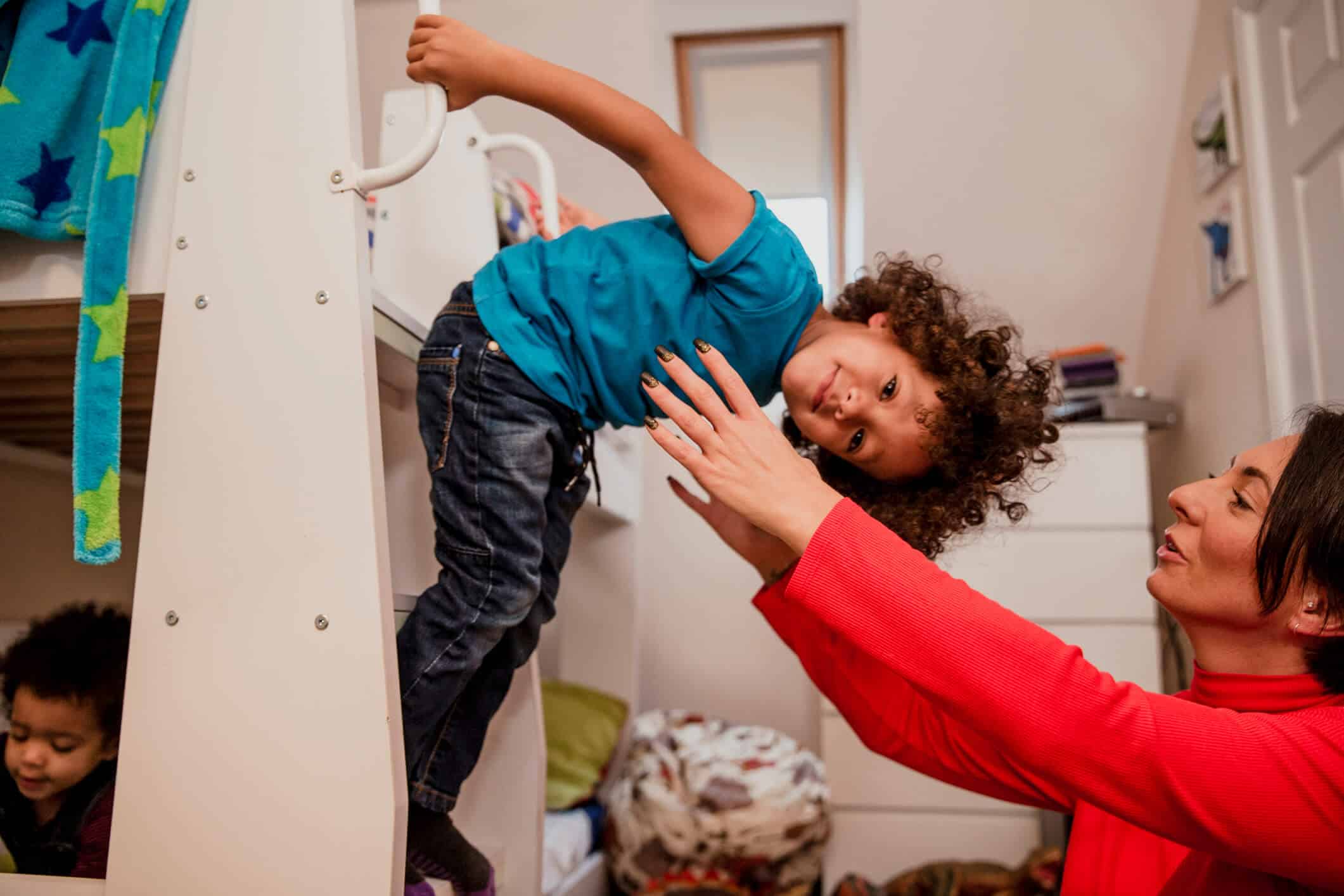
Taking diana baumrind's definition a step further by understanding the psychological fears of permissive confusion reigns when defining 'what is permissive parenting?' trying to find a universally applicable definition of permissiveness in.
Permissive parents usually take on more of a friend role than a parent role.
They often encourage their children to talk with them about their problems, but they usually don't put much effort into discouraging poor.
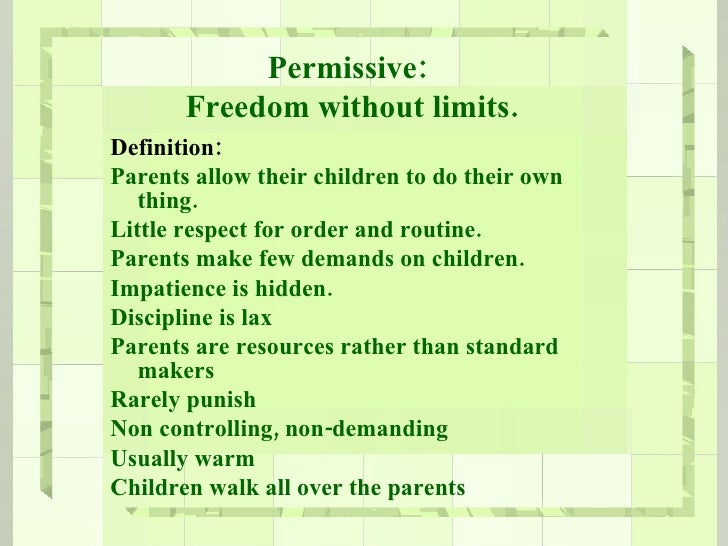
Some people believe that being using a permissive parenting style is a lackadaisical attitude and suggest that kids need more of a authoritative approach.
It defines permissive parents as parents with high responsiveness but low demands on the child.
It is also known as i ndulgent parenting.
/1095045-article-types-of-parenting-styles-5a7cb6aaa18d9e00362ef5eb.png)
P ermissive parenting and n eglectful parenting.
While permissive parents are often very responsive and loving, this parenting style is defined by having no rules.
The term was developed by psychologist permissive parents have a hard time setting limits with their children, says laura markham, ph.d., author of peaceful parent, happy kids.

A manner of parenting in which permission is far more common than anything else.
Permissive parenting is characterized by loose boundaries, few consequences or enforced rules, and an inability.
Permissive parenting is a type of parenting style characterized by low demands with high responsiveness.
Someone who cares about other people and doesn't want to hurt anyone.
Permissive parenting is also known as indulgent parenting.
Parents adopt a very friendly parenting approach in this kind of parenting style, and they often do not expect their children to act or behave in a mature manner.
Permissive or indulgent parents mostly let their children do what they want, and offer limited guidance or direction.
Few of us fit neatly into one single parenting style, but rather raise children using a combination of styles.
Think of the four styles as a continuum instead of four distinct ways to parent.

The developmental outcomes for children reared in permissive homes are also generally more negative compared to those reared in authoritative homes.
Permissive parents are low in demandingness and high in responsiveness.
Benefits of this negligent parenting style:

That's the reason kids happen to explore everything and become.
Permissive parenting is a style of parenting where parents typically want to be viewed by their kids as a 'buddy' rather than a parent.
While permissive parents are often described as being very nurturing and loving, this controversial style of parenting is defined for having no rules.

The permissive style of parenting has many drawbacks.
The children are in control even though they aren't mature enough to know what's best for them.
Seem more like a friend than a parent, standards of behaviour and rules, if any, are often very inconsistent.

Permissive parenting is a parenting style that tends to be very gentle and affectionate, with few rules or expectations for how a child should behave, child therapist katie lear explained to scary mommy.
These parents tend to be great at all of the warm, fuzzy interactions that build strong attachment but.
Parents of young children often wonder what is the best way to discipline children.

But as time goes by and the child starts growing up, the evidence of permissiveness begins to show.
Learn the definition of 'permissive parenting style'.
Check out the pronunciation, synonyms and grammar.

With permissive parenting the relationship dynamic between the parent and the child is the most like a friendship compared to all of the other parenting styles.
These are the types of parents that are very lenient and let their children express themselves the most.
The limits in this relationship can be.
Although stricter than permissive, it is not nearly as extreme as authoritarian.
This style encourages critical thinking and discussion within the family unit along with.
The second style is permissive.

There is little to no punishment for bad behavior, because they don't want to get too involved.
Ternyata Tertawa Itu DukaAwas!! Nasi Yang Dipanaskan Ulang Bisa Jadi `Racun`Tips Jitu Deteksi Madu Palsu (Bagian 1)Resep Alami Lawan Demam AnakHindari Makanan Dan Minuman Ini Kala Perut Kosong4 Titik Akupresur Agar Tidurmu NyenyakSaatnya Bersih-Bersih UsusMengusir Komedo Membandel - Bagian 24 Manfaat Minum Jus Tomat Sebelum TidurSehat Sekejap Dengan Es BatuPermissive parents practically let the children have control, giving them too many choices. Permissive Parenting Style Definition. There is little to no punishment for bad behavior, because they don't want to get too involved.
Permissive parenting is characterized by parents who are responsive to their children, but lack rules and discipline.

Permissive parenting is a type of parenting style characterized by low demands with high responsiveness.
Permissive parenting definition, characteristics and effects.
Permissive parenting, also known as indulgent parenting, is a parenting style characterized by high responsiveness and low demandingness.

Kids do not have many responsibilities and are allowed to regulate their behavior and the majority of their this parenting style involves:
Being nurturing and warm, but reluctant to impose limits.
Rejecting the notion of keeping their kids under control.
However, they are overly accepting of their children's behaviour, good or bad.
They feel their children are capable of making their own decisions with little parental guidance.
Permissive parenting styles represent one of four types of parenting that psychologists recognize.
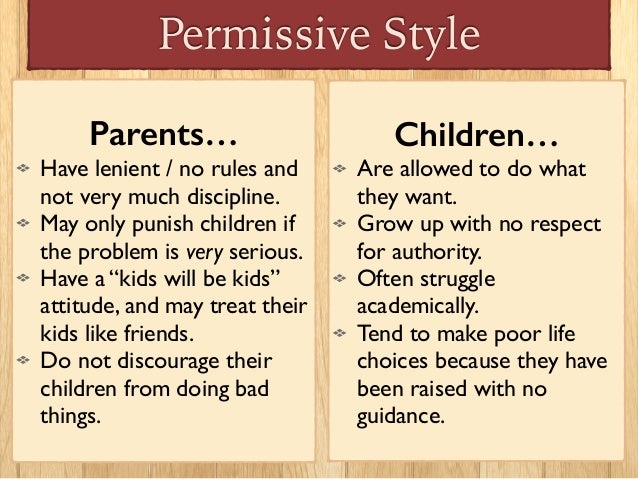
Permissive parents are highly responsive towards their children's needs and nurture their talents and personality.
But they are least demanding because they have low expectations on children may love permissive parenting style as it gives them the maximum freedom without any strings attached.
A parenting style is a psychological construct representing standard strategies that parents use in their child rearing.

The official, psychological definition of permissiveness concerns parental control.
Are permissive parents too lax?
What criteria must parents meet the textbook definition.

Taking diana baumrind's definition a step further by understanding the psychological fears of permissive confusion reigns when defining 'what is permissive parenting?' trying to find a universally applicable definition of permissiveness in.
Permissive parents usually take on more of a friend role than a parent role.
They often encourage their children to talk with them about their problems, but they usually don't put much effort into discouraging poor.
Some people believe that being using a permissive parenting style is a lackadaisical attitude and suggest that kids need more of a authoritative approach.
It defines permissive parents as parents with high responsiveness but low demands on the child.
It is also known as i ndulgent parenting.

P ermissive parenting and n eglectful parenting.
While permissive parents are often very responsive and loving, this parenting style is defined by having no rules.
The term was developed by psychologist permissive parents have a hard time setting limits with their children, says laura markham, ph.d., author of peaceful parent, happy kids.
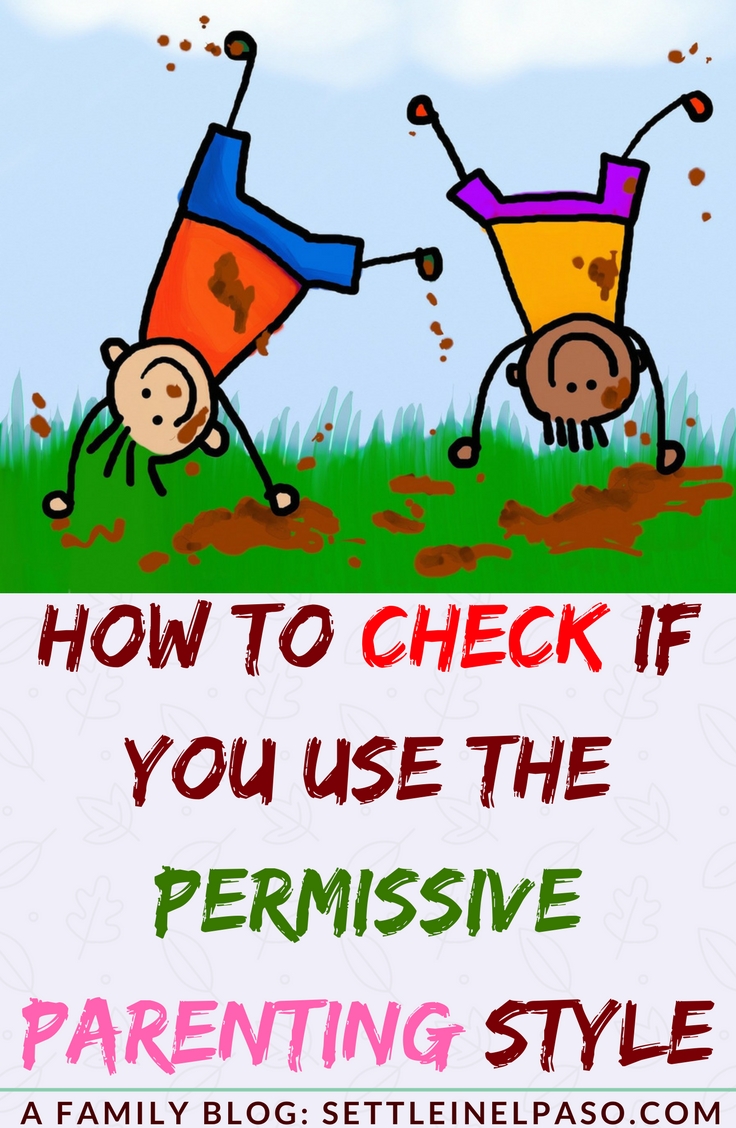
A manner of parenting in which permission is far more common than anything else.
Permissive parenting is characterized by loose boundaries, few consequences or enforced rules, and an inability.
Permissive parenting is a type of parenting style characterized by low demands with high responsiveness.

Someone who cares about other people and doesn't want to hurt anyone.
Permissive parenting is also known as indulgent parenting.
Parents adopt a very friendly parenting approach in this kind of parenting style, and they often do not expect their children to act or behave in a mature manner.
Permissive or indulgent parents mostly let their children do what they want, and offer limited guidance or direction.
Few of us fit neatly into one single parenting style, but rather raise children using a combination of styles.
Think of the four styles as a continuum instead of four distinct ways to parent.

The developmental outcomes for children reared in permissive homes are also generally more negative compared to those reared in authoritative homes.
Permissive parents are low in demandingness and high in responsiveness.
Benefits of this negligent parenting style:
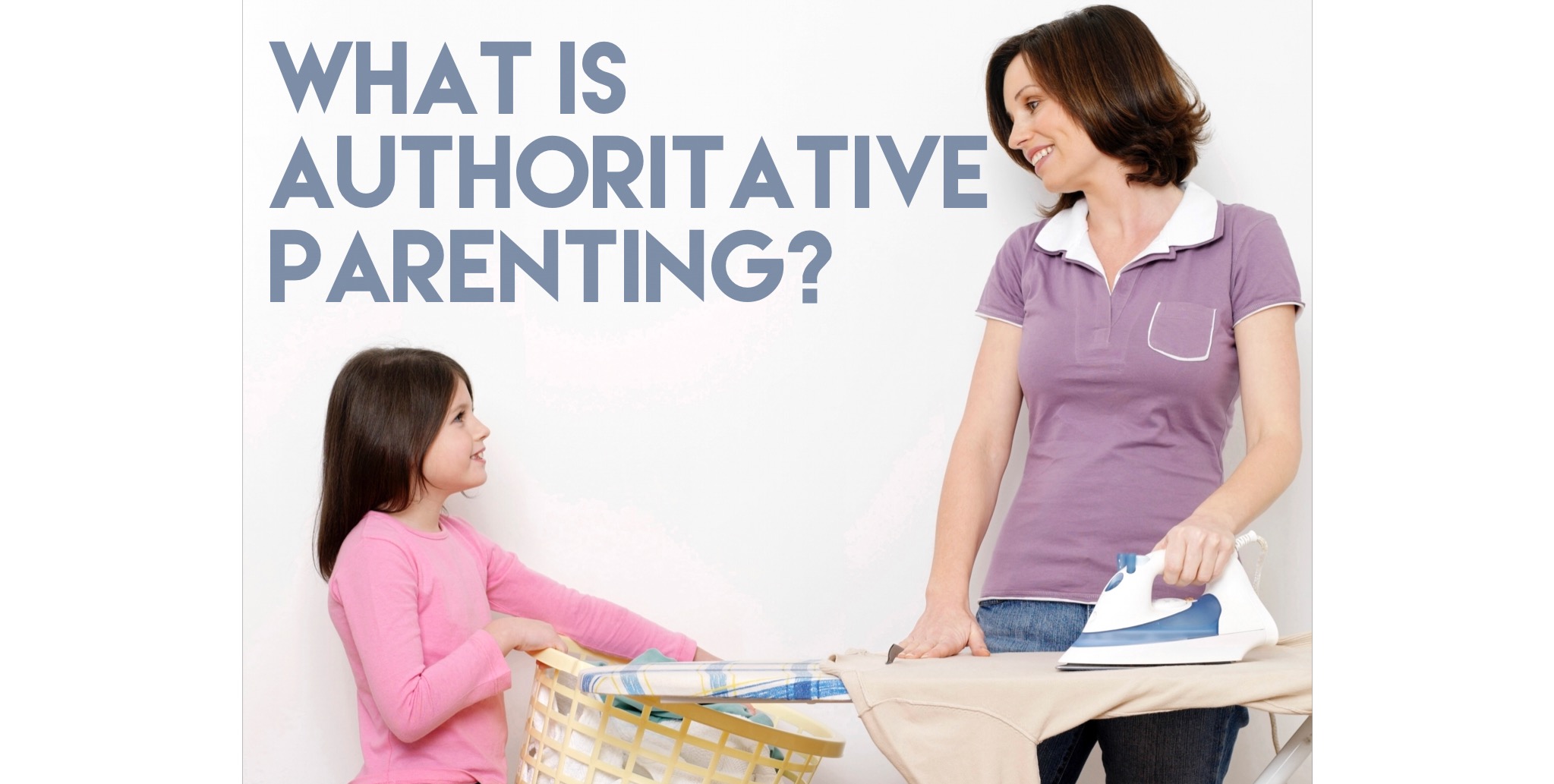
That's the reason kids happen to explore everything and become.
Permissive parenting is a style of parenting where parents typically want to be viewed by their kids as a 'buddy' rather than a parent.
While permissive parents are often described as being very nurturing and loving, this controversial style of parenting is defined for having no rules.
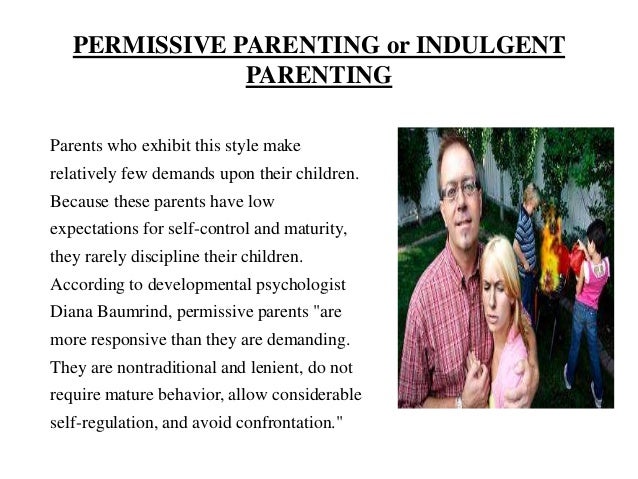
The permissive style of parenting has many drawbacks.
The children are in control even though they aren't mature enough to know what's best for them.
Seem more like a friend than a parent, standards of behaviour and rules, if any, are often very inconsistent.

Permissive parenting is a parenting style that tends to be very gentle and affectionate, with few rules or expectations for how a child should behave, child therapist katie lear explained to scary mommy.
These parents tend to be great at all of the warm, fuzzy interactions that build strong attachment but.
Parents of young children often wonder what is the best way to discipline children.

But as time goes by and the child starts growing up, the evidence of permissiveness begins to show.
Learn the definition of 'permissive parenting style'.
Check out the pronunciation, synonyms and grammar.
With permissive parenting the relationship dynamic between the parent and the child is the most like a friendship compared to all of the other parenting styles.
These are the types of parents that are very lenient and let their children express themselves the most.
The limits in this relationship can be.

Although stricter than permissive, it is not nearly as extreme as authoritarian.
This style encourages critical thinking and discussion within the family unit along with.
The second style is permissive.
There is little to no punishment for bad behavior, because they don't want to get too involved.
Permissive parents practically let the children have control, giving them too many choices. Permissive Parenting Style Definition. There is little to no punishment for bad behavior, because they don't want to get too involved.Khao Neeo, Ketan Mangga Ala ThailandResep Cream Horn Pastry7 Makanan Pembangkit LibidoKuliner Legendaris Yang Mulai Langka Di DaerahnyaIkan Tongkol Bikin Gatal? Ini Penjelasannya3 Jenis Daging Bahan Bakso TerbaikResep Segar Nikmat Bihun Tom YamBuat Sendiri Minuman Detoxmu!!Ternyata Asal Mula Soto Bukan Menggunakan DagingWaspada, Ini 5 Beda Daging Babi Dan Sapi!!
Komentar
Posting Komentar